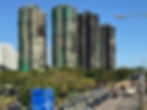- Jul 25, 2025
- 7 min read

Those who did not live before Covid have not tasted the sweetness of life — On Eddington
July 25, 2025
I have a lot of nostalgia for the world I grew up in. We rode our bikes to go fishing in local ponds, we had a big 4th of July parade that would hardly look out of place in 1910, and the general attitude of my town was a sort of quirky patriotism paired with mild, mainline protestant conservatism. The adults were employed as lawyers, doctors, business owners, and mid-tier corporate types. The beach was packed on a summer day, and everyone knew and generally appreciated each other. Politics was a hobby for a few people, but never terribly important, and the main issues of the day were things like “how do we stop that atrocious development near the forest preserve?” and “is everyone on board to come help at the soup kitchen tonight?” Lake Bluff was little America, and while it was imperfect, and built on wealth that I am sure many leftists would object to, it was Americana – a small town on the great lakes where thoughts of “decolonization” never came up even as we would occasionally find arrowheads in the ravine near our house. The houses were unlocked and the neighbors dog-sat when you went out of town.
I always assumed, when I left for college, that even amidst the turmoil of college campuses, the porches and backyards in Lake Bluff would be safe for me and my friends to smoke cigarettes, drink a few brews, have bonfire parties, and relax. This was a safe assumption. That was still the world that existed there.
Then came 2020.
I got home from college after the first riots started near my apartment in Lincoln Park. I was already fed up with the masking insanity, but to top off the no-longer safe assumption that I was reasonably safe in Chicago, it was time to come home. Besides, my friends who were also in college at the time began to be notified that the remainder of their semesters would be conducted by Zoom, and my high school class gradually made the pilgrimage home to our little town on the lake.
When I got there, the atmosphere was growing darker by the day, even though my buddies and I were having a lot of fun (turned out that we could have just as much fun drinking beers together over a bonfire during a pandemic as we could before the pandemic.) But the adults were suddenly glued to the news, and the old consensus, the little America conservatism of the town, was morphing into a majority of people becoming obsessed with Robin D’Angelo and Ibram X Kendi and being COVID/masking scolds. Another group in town, a minority to be sure, filled their mind with lurid stories of global pedophilia rings and big pharma manipulation, total rejection of anything to do with COVID precautions, and absolute hostility to the sort of race-mongering being promoted as the “current thing.” The town had broken. People didn’t trust their neighbors and the beaches were no longer full, and if they were, absurd mask mandates and vax cards ushered one in on the condition that one submit to what was objectively an authoritarian health regime.
I remember being yelled at by people I went to high school with who had always been small c conservatives that I needed to read Robin D’angelo and Ibram X Kendi. I suppose in addition, it was a stupid time too. The ones who clung to the old America were getting into Q-anon and more hardcore conservatism, and the ones who were ready to embrace the new America were getting into land acknowledgements and inviting BLM leaders to come speak in the town square. Personally, the latter was so distasteful I ended up moving to the right, as one can only be yelled at so many times about social distancing and the need to be sufficiently self-hating before they snap.
I never thought I would see that era accurately recalled. Most people don’t want to remember. In the end, the new America, with its dopey anti-racism and “wokeness” (to use a word I dislike) was humiliated in 2024, and it was them, the people that said they were on the right side of history, who ended up getting humbled. As the meme in 2020 goes, “nature is healing.” There’s no need to remember all that bad stuff when an awkward and probably insufficient attempt to return to the pre-pandemic status quo is in place.
But the new film by Ari Aster, Eddington (starring the delightful Joaquin Phoenix as a bumbling western sheriff) doesn’t want us to be comfortable with the fact that the world did really change during the pandemic, and not for the better (or, for that matter, the worse).
The film starts and ends with what lurked behind the scenes of all of it: A data center being built in a small town in New Mexico. The conflict at the beginning of the film is what small towns and society normally argue over: Should it be built? What costs are acceptable to the community as a whole? And are the interests of everyone going to be served by the new corporate activity? As the pandemic becomes more real, however, everyone basically forgets about that. Their social media feeds feed them national news, and national news means that George Floyd matters in a New Mexico town with three policemen, and that everyone in town has to mask up or starve.
Joaquin Phoenix’s character, dealing with a turbid home life involving an increasingly conspiratorially minded wife and mother in law, doesn’t find the Q-anon worldview terribly compelling at first. But, he is unwilling and irate that he now has to enforce mask mandates on people he knows and likes, and refuses categorically to do so. The mayor (an equally sharp Pedro Pascal), representing the bold and new America, tries to justify and enforce the mandates, but the sheriff won’t budge, and announces impulsively that he will run for mayor. The old America sheriff, who doesn’t want to build a data center, doesn’t think that George Floyd matters to the small town, and doesn’t listen to Katy Perry, faces off with the new America Mayor. The distrust and breakdown is shown vividly by their prior mutual trust and small town neighborly affection being broken down in the streets of Eddington in a heated exchange.
What ensues is a delightful parody of the 2020 presidential election. Pedro Pascal’s mayor, runs a stupid ad where he brings in black people to claim that Eddington suffers from racial inequality (meanwhile, in reality, the only black person in town is one of the three cops). He starts out the ad with a story of how his wife left him (awkward!). Meanwhile, the sheriff doesn’t do himself any favors, and his advertisements consist of driving around in a truck rambling on and on about community, masks, Bill Gates, and more. To those that do not remember, 2020 really was like that: Ads for Biden were filled with strange appeals to vague notions of “equity,” while MAGA ran car parades that in hindsight appear very strange.
Without spoiling the remainder of the movie, the opening first two acts clearly situate us back into observing 2020, while the third act shows the final break with the old America. The sheriff accuses the mayor of raping his wife when they were teenagers, which is then followed by his wife of disowning him to join a q anon cult. Finally, the sheriff shows up to an event for the mayor, which is filled with champagne, a lack of social distancing, and Katy Perry’s “Firework” playing in the background. The cool kids, the rich “new America” has besieged the sheriff, while the desperate and increasingly mindfucked old America, the America that won’t accept the cheery and soothing cries of DEI covering for big tech in the new America, also steals his wife away, no matter how hard he tries to placate them with increasingly strange antics. Katy Perry’s “Firework” sets off a series of actual fireworks, and like in most films by Aster, the third act is filled with bloodshed, mysterious third parties (possibly funded by the data center company, but flying in on a private jet to claim to be antifa, in a clear reference to astroturfed rioters in 2020), and the eventual triumph of a sort of maternalist tyranny over the finally fully emasculated and literally paralyzed sheriff. Aster seems to fear, consistently throughout all four of his movies, the domineering maternal more than anything else.
The movie starts and ends with the data center. The interpretations offered by most people of the film’s politics have focused on the wrong things. They are still broken by 2020, and only see the culture war, little bits and pieces of the grand ornament of capitalist social reality. What ultimately exists, for the film, is the hum of the neon outside of the data center, which, by the end of the film, has been built. Capitalism’s continuous revolution and reaction are masked by the reactions of the people seeing the incomplete reality in their feeds.
This is in fact a marvelous metaphor for Trump’s second term. The sheriff, now the mayor by the end of the film, albeit incapacitated, ends up inaugurating the new world that Pedro Pascal’s Mayor attempted to create. The historical inevitability of the march of capital, once masked by the Mayor and the democrat’s “right side of history” wokeism, is now masked by conservative talking points, given in speeches at the very opening of the data center.
I wish I could go back to biking to my local pond every Friday afternoon as an 11 year old and come home to American flags in my friends and neighbors driveways. But this is just the way things are: Capitalism continues, and until it is seen and comprehended, people will only continue to see structural racism, pedophile conspiracies, and cultural conflict, because they will only continue to see bits and pieces of the hard reality of the world.












.png)





.png)


.png)
